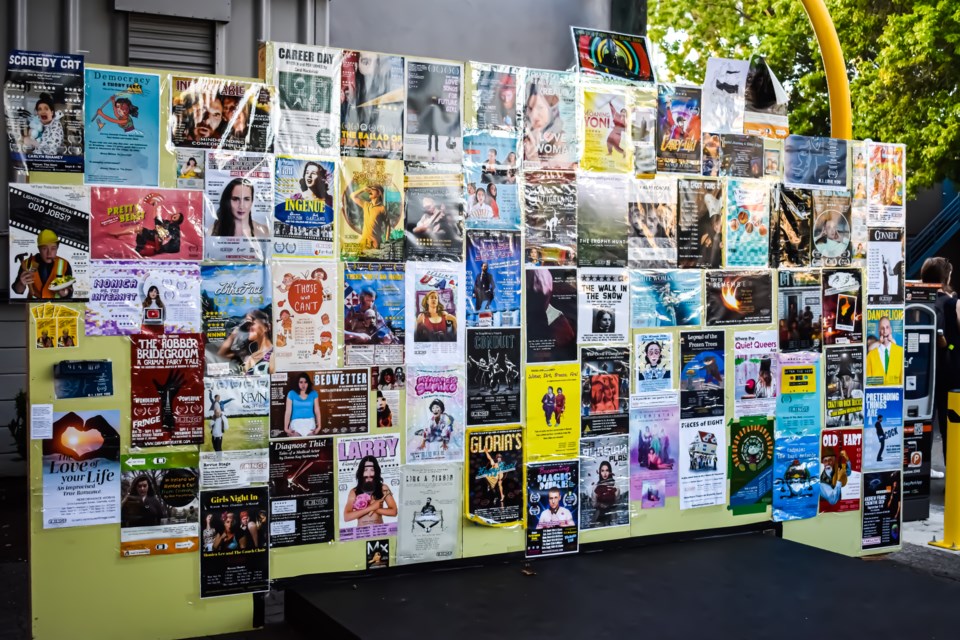Entering its 40th year, the Vancouver Fringe Festival is the second-oldest arts event of its kind in North America.
Having lasted so long, it may seem like a permanent fixture in the city, but organizers are fundraising as its financial future is unstable.
"We're so excited as an organization to be hitting this milestone," Vancouver Fringe Festival Executive Director Duncan Watts-Grant tells V.I.A. "It's a challenging moment, with that in mind, to turn around and say 'this is where we're at.'"
They've launched a campaign to raise $80,000 by May 31.
At the same, time the 2024 Fringe Festival is being reduced to keep costs down. In a normal year, there are 85 or so performances; this year it will be between 60 and 65.
"I don't know what the 2025 festival would look like without the fundraising," says Watts-Grant.
The issue is simple: Costs are up and incoming funds are going down. Decreased sponsorships and rising costs have created a funding gap for the festival.
"What we're seeing in [the local arts] sector is the emergence from the pandemic is harder in some ways than the pandemic itself," explains Watts-Grant.
Other arts and performance festivals across Canada, including Just for Laughs, Shakespeare by the Bow, and the Regina Folk Festival, have had to cancel editions due to financial issues. Last year, the Vancouver Folk Festival faced similar woes.
"Festivals are feeling inflation because our costs all come up at once," explains Watts-Grant.
Meanwhile, Vancouver Fringe is in good shape to pull off this year's festival, but things are getting tight and organizers are looking to create a more secure future.
"This can be seen as dire, but I also think it's important our community understand this call out is about building a sustainable future for the festival," says Watts-Grant.
During the pandemic, grant money was more available, while costs for putting on performances were down, since there were essentially none.
So far the fundraising efforts are going well. As of publication $9,000 has been raised and one supporter, Leonard Schein, has promised to match any new monthly donations (he'll match the value of one year of giving) up to $10,000.
How 'fringe' festivals work
Part of the reason for the Vancouver Fringe Festival's financial need is due to how fringe festivals work.
The festival organization runs on government grants (which are essentially unchanged over the years), memberships, and sponsorship.
Unlike other festivals, the organization doesn't get a cut of the ticket price. That goes to the artist or artists behind the production.
"If you're coming to see a show you're supporting the artist," says Watts-Grant.
On top of that, the festival helps cover the majority of production costs (around 80 per cent he says), like rentals and staff.
"I think the fringe remains the cheapest way to produce theatre if you're an artist," he adds.
Why fringe matters for artists
Watts-Grant says fringe can be considered as a service for artists, especially those early in their career or trying something different.
For one thing, performances aren't curated. There's a lottery held to pick what will get shown, meaning luck has a bigger role to play than whether a show is commercially viable; anyone who can put together a show has the chance to perform.
Then there's the fact the festival covers many of the costs while allowing those creating the shows to take home the ticket sales. All of this is important, as the cost of living is pushing people out of Vancouver, explains Watts-Grant.
"We know artists are leaving Vancouver because they can't afford to stay in the city," says Watts-Grant
At the same time, space and time on stage are getting harder to come by as venues close.
"All performing arts companies are reducing the amount that they're presenting," says Watts-Grant.
He adds that fringe festivals are an important piece to Canadian culture, acting as a place for creativity and new talent to be seen and where no one is beholden to an artistic director. Acts like k.d. lang and Kim's Convenience had important dates at past Canadian fringe festivals.
"The fringe has created an indelible mark on Canadian culture in a way," he says.



